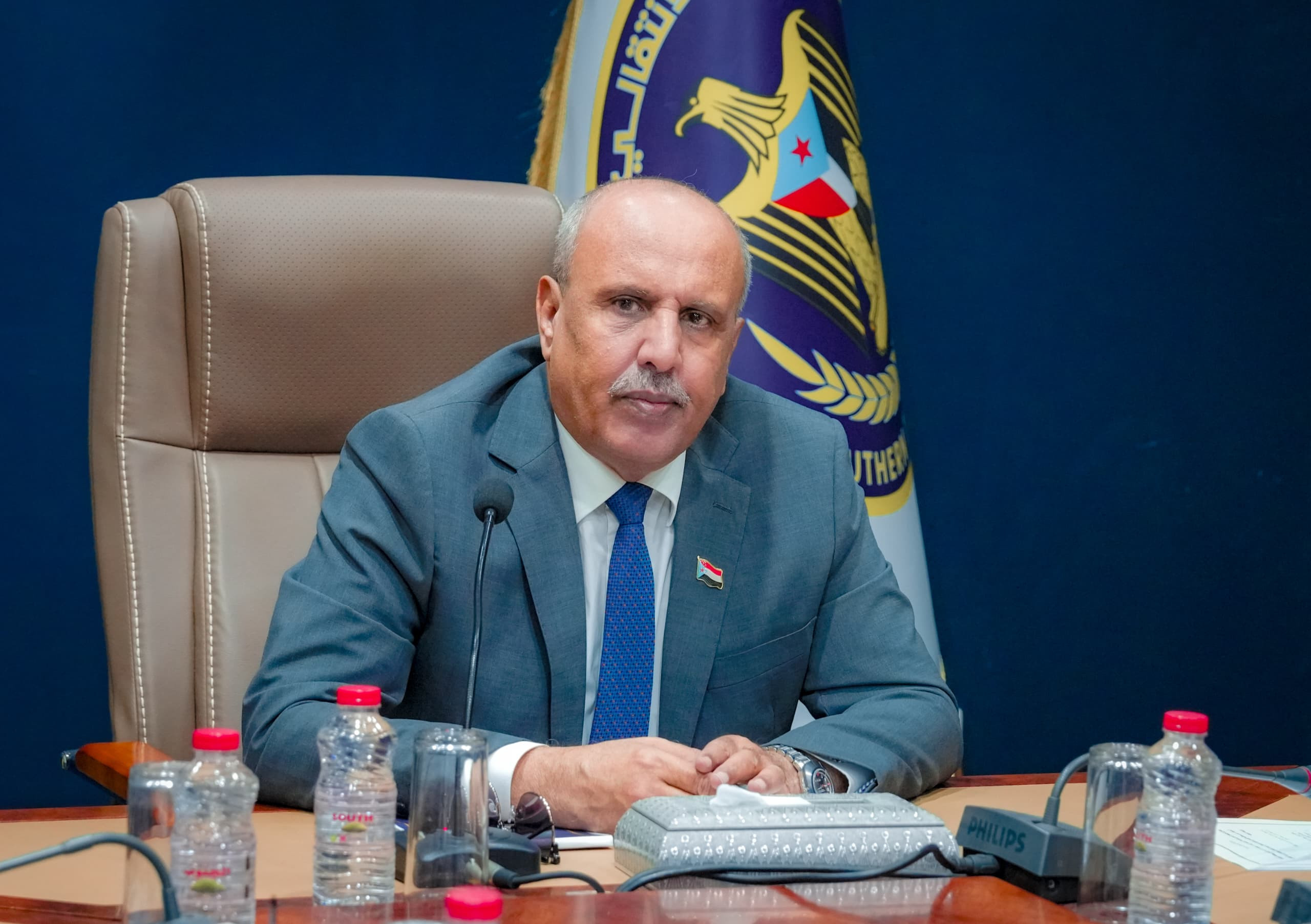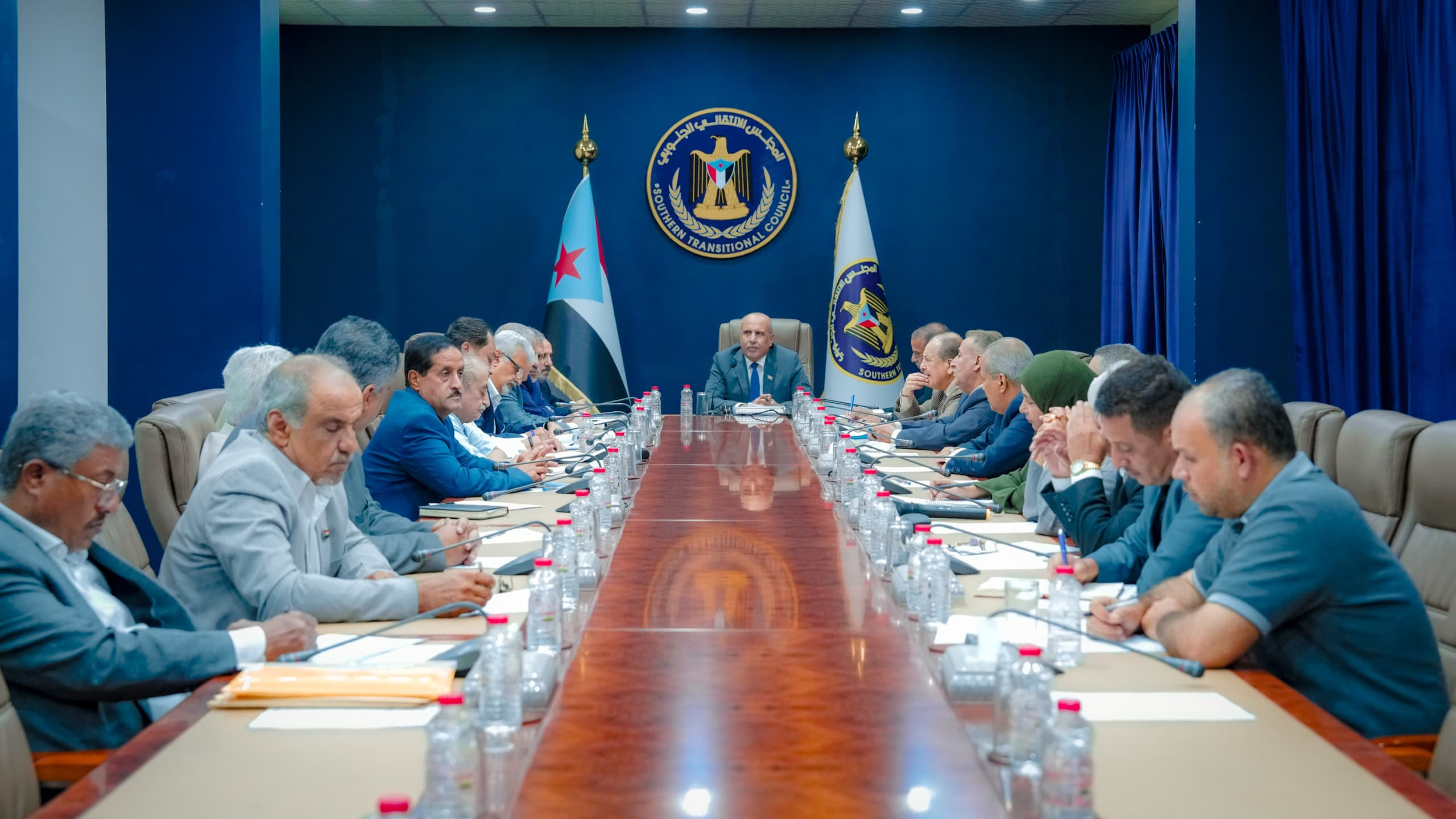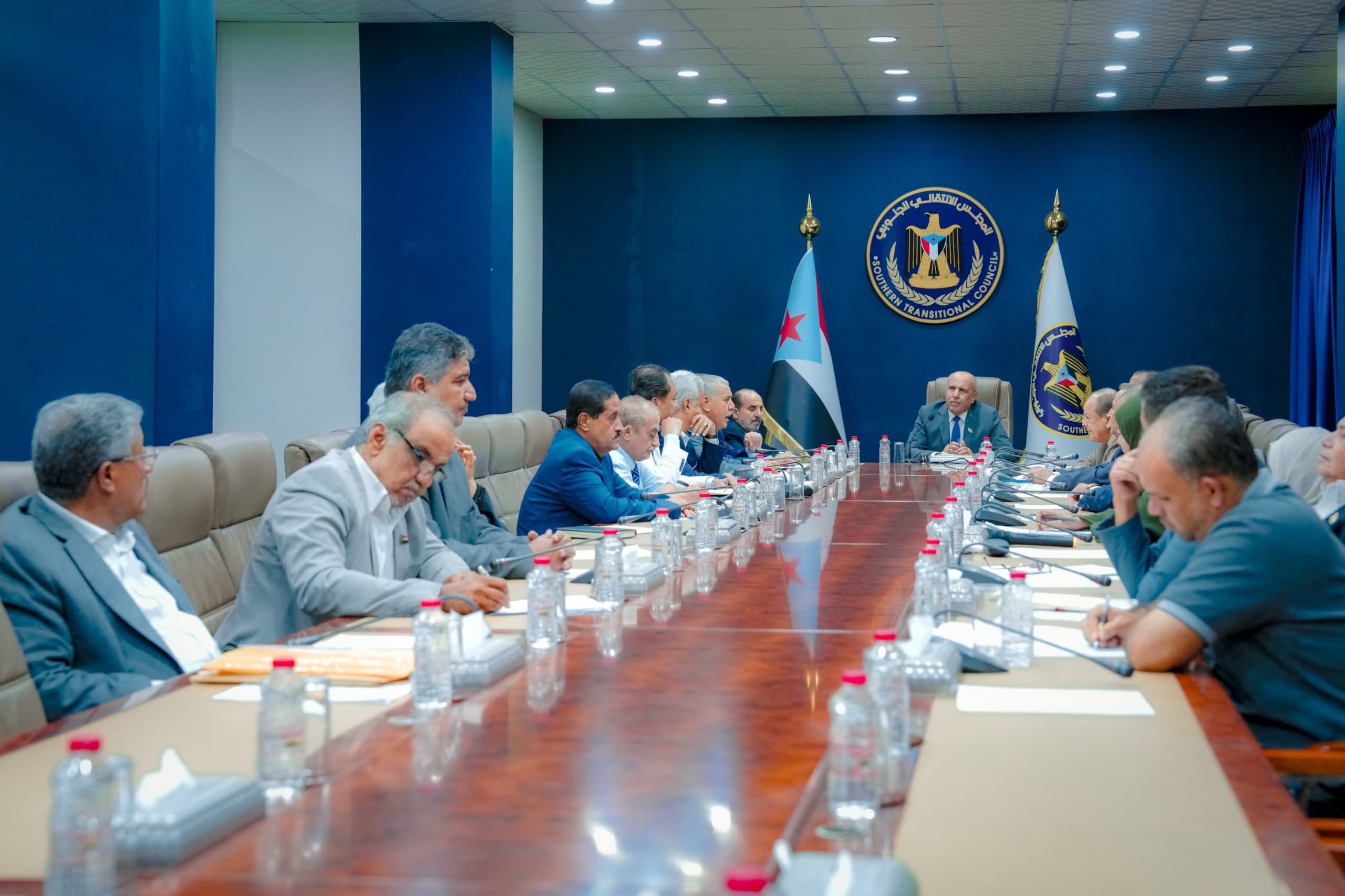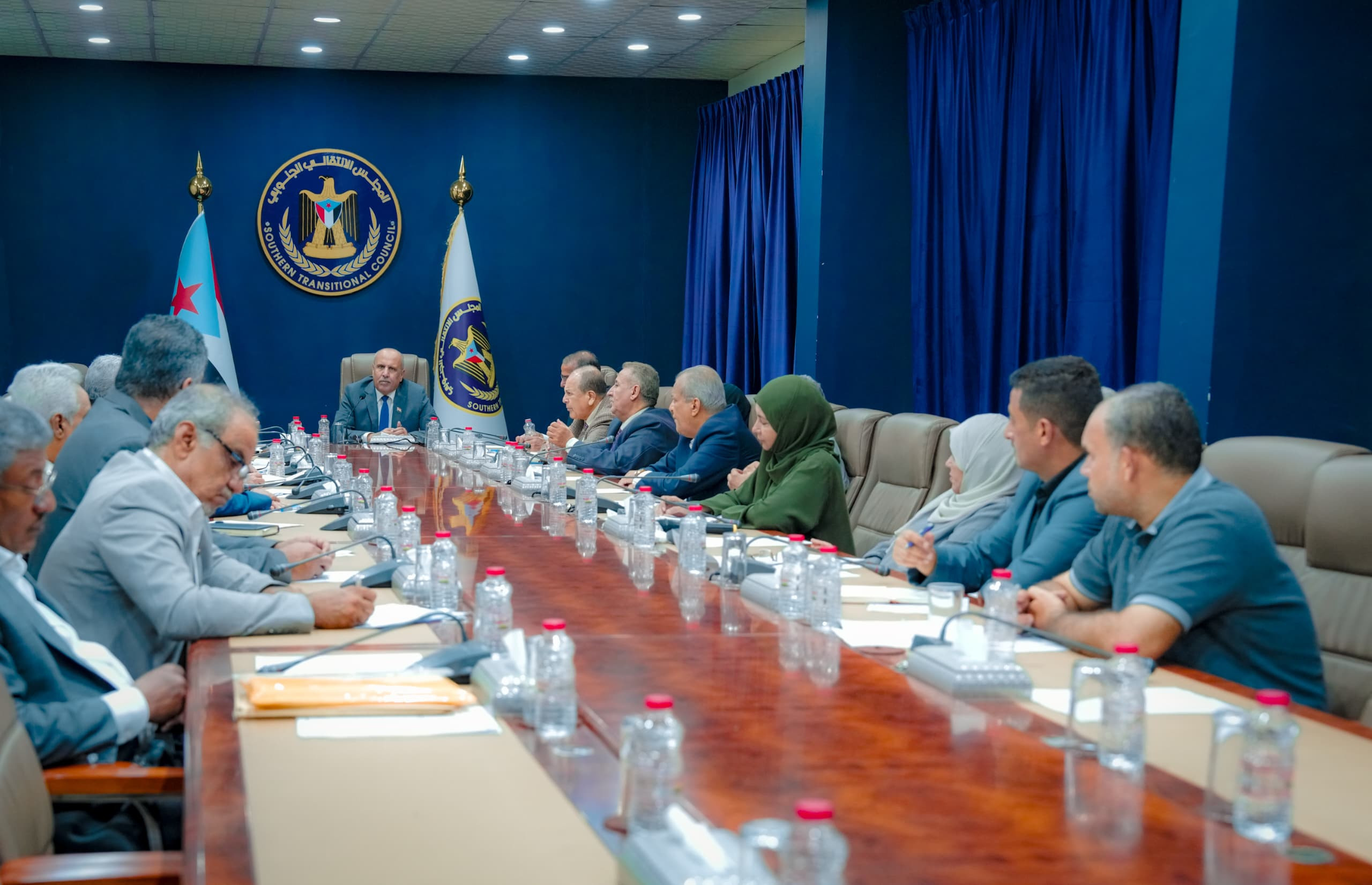STC Secretary-General Meets UN Humanitarian Coordinator
Mr. Abdulrahman Jalal Shaher al-Subaihi, a member of the Presidium of the Southern Transitional Coun...
The Presidium of the Southern Transitional Council (STC) held its regular meeting today, Monday, chaired by Mr. Ali Abdullah Al-Kathiri, Acting President of the STC and Chairman of the National Assembly, in the presence of the STC ministers in the government and heads of the auxiliary bodies.
Mr. Al-Kathiri began the meeting with a briefing on President Aidarous Al-Zubaidi's intensive political and diplomatic efforts in Riyadh, Saudi Arabia, and the outcomes from his key meetings with ambassadors and representatives of the countries sponsoring the political process, regional and international partners, and ambassadors of a number of brotherly and friendly countries, which focused on finding urgent solutions to severe issues affecting citizens, chiefly the worsening economic and living conditions, which were identified as primary drivers behind the current crisis.
The Presidium extensively discussed the deteriorating economic situation in the country, stating that stopgap remedies are no longer sufficient unless serious and comprehensive steps are taken that include a genuine reform to fully revive state institutions, enhancing their capacity to fulfill their responsibilities towards citizens.
The Presidium emphasized that resuming oil exports, reactivating revenue bodies, and channeling all local and central funds to the Central Bank to ensure the completion of the monetary cycle and the stability of the financial system represent an essential starting point for any genuine economic reform, away from the centers of influence and corruption that obstruct such reforms.
Furthermore, the Presidium confirmed its full support for the directives of Prime Minister Salem bin Breik, which aim to bring about real reforms in state institutions and reactivate their service, control, and development roles, highlighting the need to provide a conducive political and administrative environment for the success of these efforts to launch a new era of serious and accountable governance.
In the context of its meeting, the Presidium discussed the latest political developments and efforts to end the war and achieve peace. In this respect, the Presidium reaffirmed the Council's firm position, recently articulated by President Al-Zubaidi in his recent meetings, that it is impossible to engage in any negotiation process with a militia that is internationally designated as a terrorist organization and persists in posing an existential threat to the people of the South and to regional and international security.
The Presidium emphasized that viable peace efforts must be based on an applicable reading of the current realities, particularly after the Iranian regime, the primary financier and backer of the Houthi militia, received qualitative blows that will degrade its ability to continue undermining the security and stability of the region.
At the end of its meeting, the Presidium reviewed the military and security landscape in the South, commending the great efforts exerted by personnel of the security services and military forces to maintain security and stability and combat terrorism, pointing out that the findings of the Supreme Security Committee regarding the terrorist Amjad Khaled are a confirmation of the correctness of the security approach adopted by the Southern forces in tracking terrorist cells and pursuing their elements and their capability to successfully thwart the plots that target the security and stability of the capital, Aden, and the governorates of the South.



